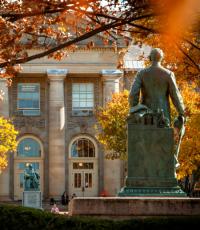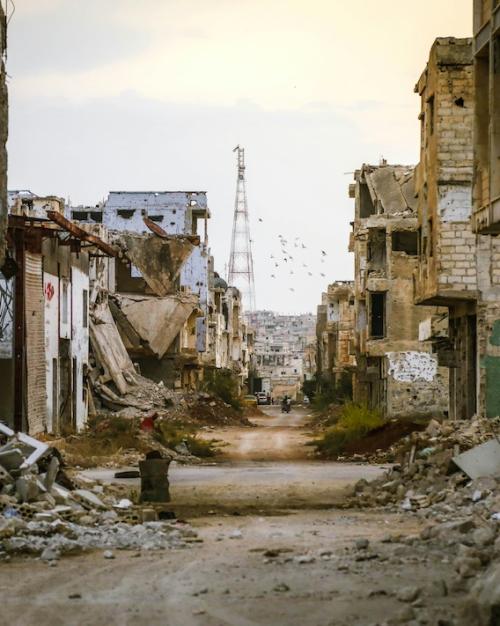President Bashar al-Assad of Syria fled to Russia on Sunday after Hayat Tahrir al-Sham rebels took control of Damascus, and the country, ending 14 years of civil war and 24 years of Assad’s dictatorship.
Alexandra Blackman, assistant professor of government, studies the evolution of authoritarian institutions in the Middle East. Her research interests also include the relationship between political regimes and religious institutions.
Blackman says: “Regarding Syria, one of the most pernicious repercussions of the neo-conservative foreign policy agenda has been to create a link between democracy promotion and imperialism. It is important for the international community to allow Syrians to lead on the significant issues surrounding future governance and allow those processes to develop without amplifying the perception of foreign influence. Foreign interference has certainly been a major factor in the region over many decades but is, understandably, viewed very negatively. Perceptions of foreign influence could discredit the process.”
---
Mostafa Minawi is associate professor of history and director of the Center for Critical Ottoman and Post-Ottoman Studies.
Minawi says: “Beyond humanitarian aid, minimal external intervention in Syria should take place, though I have very little hope that would happen with Israel already taking advantage of the chaos to usurp more Syrian territory in the South and bomb civilian infrastructure in Damascus. With Turkey, the U.S., Iran, Israel, Russia, and some Arab countries already involved, it is naïve to think that they will sit back and let Syrians determine their future freely, even though the Syrian people deserve nothing less.
“The Syrian people, a profoundly dignified people that have suffered so much indignity over the past fifty years, deserve to celebrate the end of this brutal regime. Many legitimate worries remain as to Hayat Tahrir al-Sham, their backers, and the plans for the future of Syria. For now, the focus should be on immediate assistance to those still trapped in the horrific technologically advanced dungeons of horrors left behind by the brutal Assad regime.
“Instrumentalizing the notion of protection for Christian, Druze, and Alawite minorities to justify Western intervention is an ancient trick that stretches back to the final years of the Ottoman Empire. Since then, Western powers have tried to divide Syria into ethnoreligious statelets in the past but have not been successful. We will almost certainly hear of such proposals to do that again. More easily controlled Western-backed ethnoreligious states have been proposed for the region before. If history is any indication, such plans will fail again.
“Hundreds of thousands of Syrians, Lebanese, Palestinians, and others have been forcibly disappeared over 50 years of the barbaric Assad Family rule; the priority should be to help reunite families with those that are still alive, provide medical and mental health aid, and start the process of bringing those responsible for those crimes to justice. This has to be the priority if any healing is to start.”
For interviews contact Ellen Leventry, (607) 288-3784, eel2@cornell.edu.




